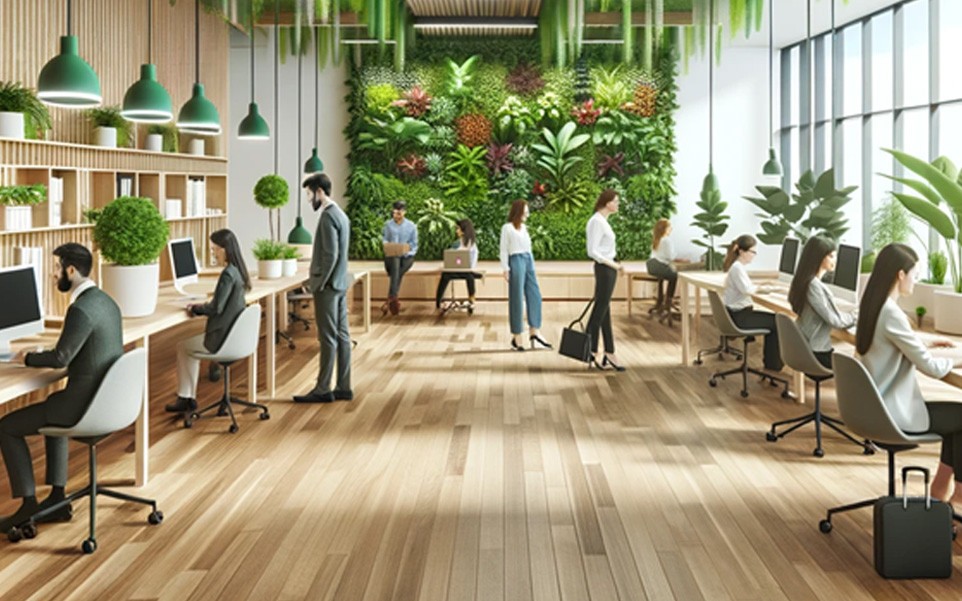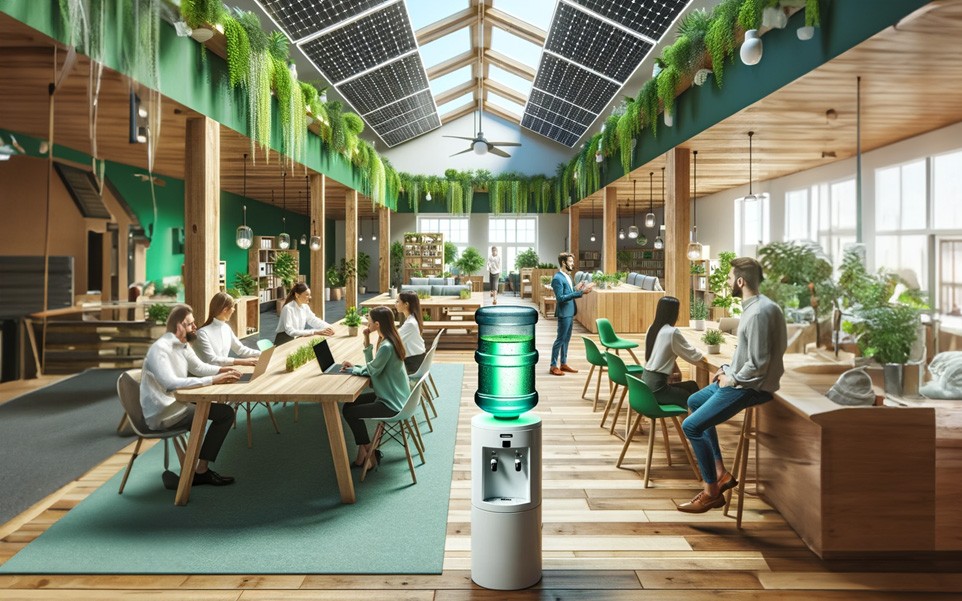Coworking
How to Build a Green Office in Coworking Spaces (10 Simple Steps)
Sowmya Sankaran / Reading Time : 4 mins
Table of Contents
In the buzzing heart of today's modern urban landscapes, coworking spaces have become synonymous with innovation, collaboration, and flexibility. These bustling hubs, filled with a dynamic mix of entrepreneurs, freelancers, and visionary startups, aren't just reshaping the way we work; they hold the potential to redefine how we approach sustainability.
With the world standing at crucial environmental crossroads, coworking spaces aren't just an opportunity to work differently; they're our chance to work sustainably. Are you ready to join the green coworking revolution? Here's a tailored guide to help you navigate and instigate the green transformation of your coworking space.
A Guide To Build A Green Office In Coworking Spaces
Coworking spaces are inherently sustainable, emphasizing shared resources and collaboration. The dynamic of these environments provides an opportunity for collective action. Promoting and incorporating green practices will enable managers and tenants to foster a culture of sustainability, making it a norm rather than an exception.
- Natural Light Utilization
Large windows, communal open spaces, and skylights aren't just aesthetic features. In coworking spaces, they provide members with an abundance of natural light, reducing the need for artificial lighting and thereby decreasing energy consumption. Encourage spaces to retain open layouts or use translucent partitions to ensure natural light reaches as many corners of the workspace as possible.
- Plants and Biophilic Design
Coworking spaces often boast a diverse community of professionals. What better way to unite them than through nature? Incorporate common areas with green walls, shared responsibility plant stations, or themed plant corners (e.g., succulent stations or fern nooks). Not only do plants uplift moods, but they also encourage members to interact and collaborate in nurturing these green additions.

- Waste Management
With multiple businesses and individuals sharing a space, waste can accumulate quickly. But this also offers an opportunity for a unified waste reduction strategy. Introduce centralized recycling stations, composting bins for shared kitchen areas, and educate members about proper waste sorting.
Tip: Consider hosting monthly zero-waste challenges or workshops to inspire and inform.
- Shared Resource Usage
One of the benefits of coworking spaces is the pooling of resources. Prioritize acquiring energy-efficient shared appliances and eco-tech integrations, such as smart thermostats or motion-sensor lights. In shared stationery or supply stations, opt for eco-friendly products like recycled paper or biodegradable items. The bulk purchasing power of coworking spaces can even influence suppliers to provide more sustainable options.
- Eco-conscious Community
The true strength of a coworking space lies in its community. Organize regular sustainability workshops, green product showcases, or even invite eco-experts for talks. Fostering an environment where members are educated and enthusiastic about sustainability lets a coworking space set the foundation for continuous green innovation in your space.

- Site Selection and Environmentally-Friendly Infrastructure
When setting up a coworking space or expanding to a new location, consider properties that already emphasize green construction or are certified for their energy efficiency. Being in an environmentally-certified building or one with a green roof, rainwater harvesting systems, or efficient HVAC systems can significantly reduce the environmental footprint.
- Shared Eco-Educational Events and Workshops
One of the unique aspects of coworking spaces is the sense of community and opportunities for collaboration. Use this to your advantage by hosting regular eco-awareness events. Whether it's a workshop on sustainable business practices, a speaker series featuring local environmentalists, or showcasing eco-friendly products entrepreneurs can use, it fosters a sense of responsibility among members.
- Transport and Accessibility
Transportation contributes significantly to carbon footprints. Locate your coworking space near public transit routes or offer incentives for members who carpool, cycle, or walk. Perhaps a dedicated bike storage area or discounts for members using green modes of transport can make a difference.
- Eco-Partnerships and Collaborations
Reach out and form partnerships with local sustainable businesses. This could be as simple as sourcing your shared kitchen's coffee from a local organic roastery, offering members discounts to nearby eco-friendly services, or inviting sustainable vendors for pop-up shops or showcases.
- Feedback and Continuous Green Innovation
The members of your coworking space are a valuable resource. Set up suggestion boxes or conduct periodic surveys to get feedback on existing green practices and ideas for new ones. This not only keeps the community engaged but may also introduce innovative solutions you hadn't considered.
Building a green coworking space is not just about implementing eco-friendly practices. It's about fostering a community that values sustainability, collaboration, and shared responsibility. Embrace these principles, and watch your coworking space flourish as a beacon of green innovation.
